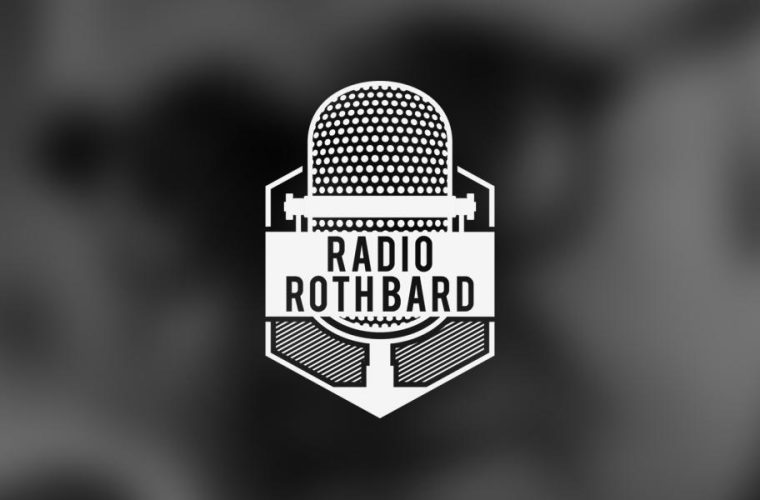
Good Causes, Brand Trust, and Profits: Why YouTuber’s Private Charity Is Wrongly Criticized
No good deed goes unpunished claims the old proverb, and twenty-four-year-old YouTuber Jimmy Donaldson’s recent charity act of helping one thousand blind people see again has the world divided on the moral circumstances surrounding his private charity. Some would go so far as calling his benevolence a “stunt.” They are utterly wrong, and understanding his reasoning and motives behind the charity acts should negate any critique.
A Successful, Yet Risky, Entrepreneurial Story
Donaldson, also known as MrBeast, is currently the owner of the most watched noncorporate YouTube channel (in regards to subscriber number, which stands at over 133 million people). His entrepreneurial endeavor started when he was only thirteen years old. By sixteen, he had already amassed thirty thousand subscribers to his channel, entertaining his audience by hilarious critiques of YouTube video introductions.
Using his charisma and rising popularity, he went on to furthering the development of his channel, focusing on stunt-based content. In order to stand out from other YouTubers and to increase viewer engagement, MrBeast’s able-minded innovation came by offering increasingly large prize incentives to participants in his videos (covered by the video’s incomes, largely ad revenues from YouTube and featured sponsors).
Although he is a millionaire given his capital assets (e.g., a mobile game, restaurant franchises, high-value brand), he admits that the wild cash flow of his business makes him technically “poor” (e.g., in liquid capital). His success formula includes a high-risk, high-reward model, under which a large amount of profit is reinvested. In his own words: “If I make $3–4 million a month I just spend it on videos next month. We literally have razor-thin margins and just reinvest it all.” This is referring to the exceptionally large prize money given to competitors of up to one million dollars. He openly acknowledges that giving money away is his innovative way of continuing his career and generating more views on his content.
Mixing Business with Personal Causes
Donaldson’s philosophy is not limited to entertaining people. He is also keen to use his money for good and to be remembered for making the world a better place. He has even pledged to give away all his money to charity after his passing.
For example, MrBeast wanted to focus his attention on environmental protection issues. He founded the Team Trees project in late 2019 with the goal of raising $20 million for planting twenty million trees around the world. The goal was surpassed, and the highly publicized project even attracted donations from Elon Musk and large corporations such as Discovery and Verizon. In late 2021, another ambitious goal of raising $30 million dollars to remove human-made marine debris through a new project (Team Seas) was not only successful, but also quick and efficient.
MrBeast’s environmental initiatives were a big success and were fueled by private sector factors such as lack of bureaucracy, transparency, brand trust, profits, economies of scale, and clear-cut, sound objectives (e.g., $1 equals one tree planted, $1 equals one pound of cleared waste). When people around the world voluntarily donated to MrBeast’s projects, they were confident that their money would be wisely spent up to the last dollar.
Left-leaning individuals could be offended seeing words such as “profits” and “private” used in conjunction with goods such as forests and oceans. But Donaldson developed efficient private solutions to failures of the “commons” while also raising awareness. Contrast this to the failures of public (tax funded, also known as coercive) initiatives, such as the recent failure of planting eleven million trees in the Republic of Turkey, or the known problem of “recycling” US-made trash by exporting it to east-Asian countries which, in Angela Logomasini’s words, “lack the market institutions—such as private property, market pricing, and economic freedom in general—necessary to efficiently manage waste. And these governments often don’t pay too much attention to waste disposal, allowing trash to migrate from dumps into waterways.”
Paying for Curing Blindness Attracts Backlash
The most recent philanthropic deed by MrBeast is paying for cataract surgery of a thousand people, including children, around the world. These people could not afford it, and their visual impairment limited their ability to educate themselves, do basic daily chores, or even work to earn a living.
However, his latest philanthropic act received not only praises, but also considerable backlash in social and mainstream media. Opponents of MrBeast’s good deed call him an exploiter of human problems. The anticapitalistic say that he takes advantage of poor, unhealthy people to make profits and become richer. Remember, MrBeast’s acts of generosity are paid for with his hard-earned money and would not have been possible without profits made by providing services to others. As he summarizes, “Every dollar I’ve ever made came from YouTube.” Even the benefactor was perplexed.
No, There Is Nothing Evil in Making Profits by Helping Others
Profit seeking in the first place is what brought Donaldson here, and he did so by firstly providing consumers with quality entertainment. This alone does not explain his rise to fame (thus, a position from which he can enact changes). As an entrepreneur, he found a niche by risking and pioneering new forms of video entertainment based on large prize incentives.
Watching this video, I could not see any hidden cameras or sad people. But I learned that people are miserable due to the inefficiency of public healthcare. I could not find any source mentioning any lack of consent by the beneficiaries of the treatments (most of which do not even appear in the video). All I could see in the video were happy people, patients and caretakers crying with the relief of leaving behind a hard mental and physical struggle.
I can’t find any argument for why a diseased person would refuse free treatment if it is conditioned by appearing in a show whose main purpose is to raise awareness about the problems faced by similar patients around the world. Neither can I find how profit making is evil when the profit is made through the consent of both parties involved. Even more so when knowing that that money will be reinvested for other causes.
Conclusion
Private charity is an efficient solution to pressing economic problems deriving from the lack of private ownership. All private charity is fundamentally paid through previous profits. It does not follow that private charity itself must be done behind the scenes. On the contrary, if acts of profit-driven private charity are well managed, they can raise awareness, attract new money, and increase the popularity of a brand; in turn, these can be utilized for the better.



